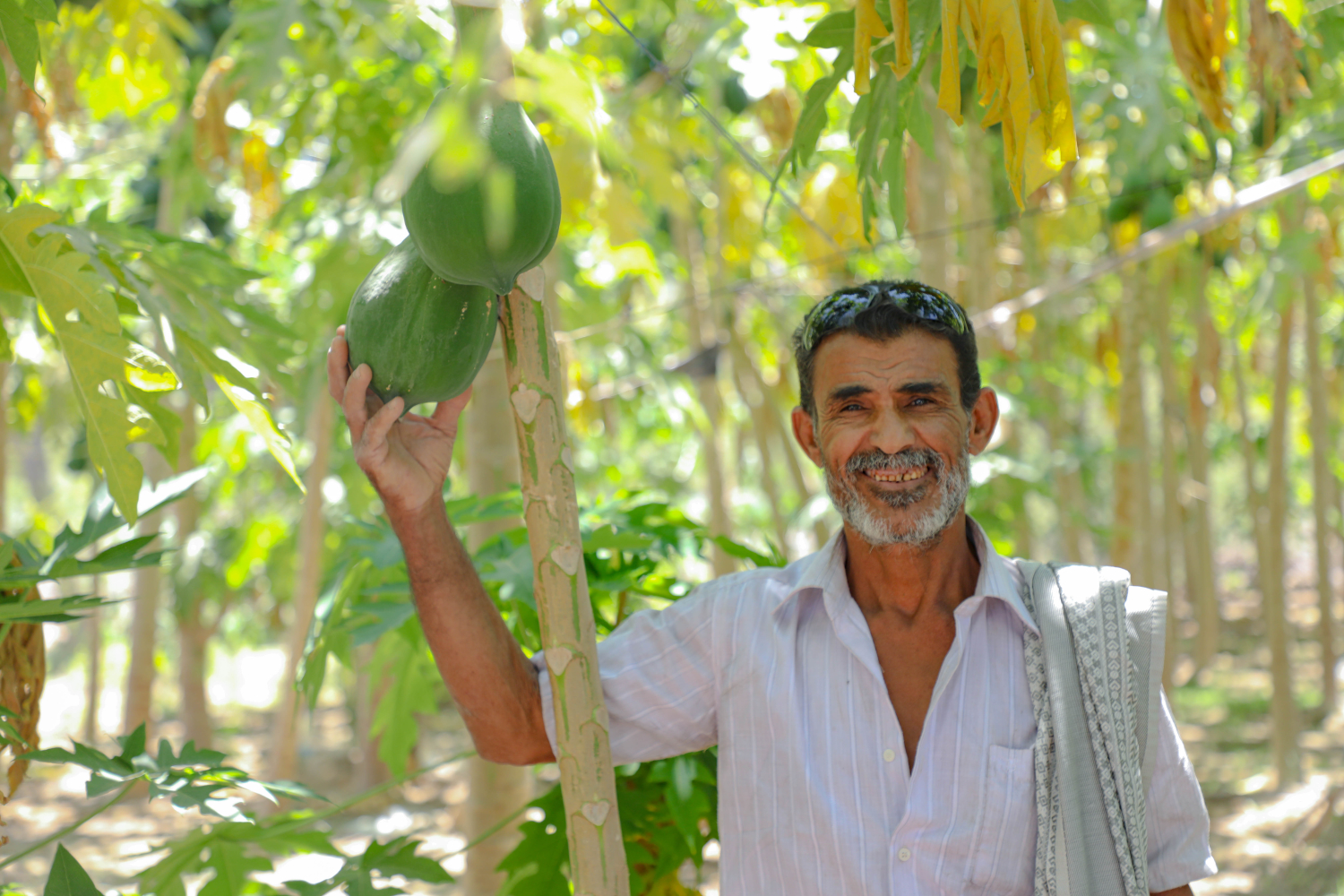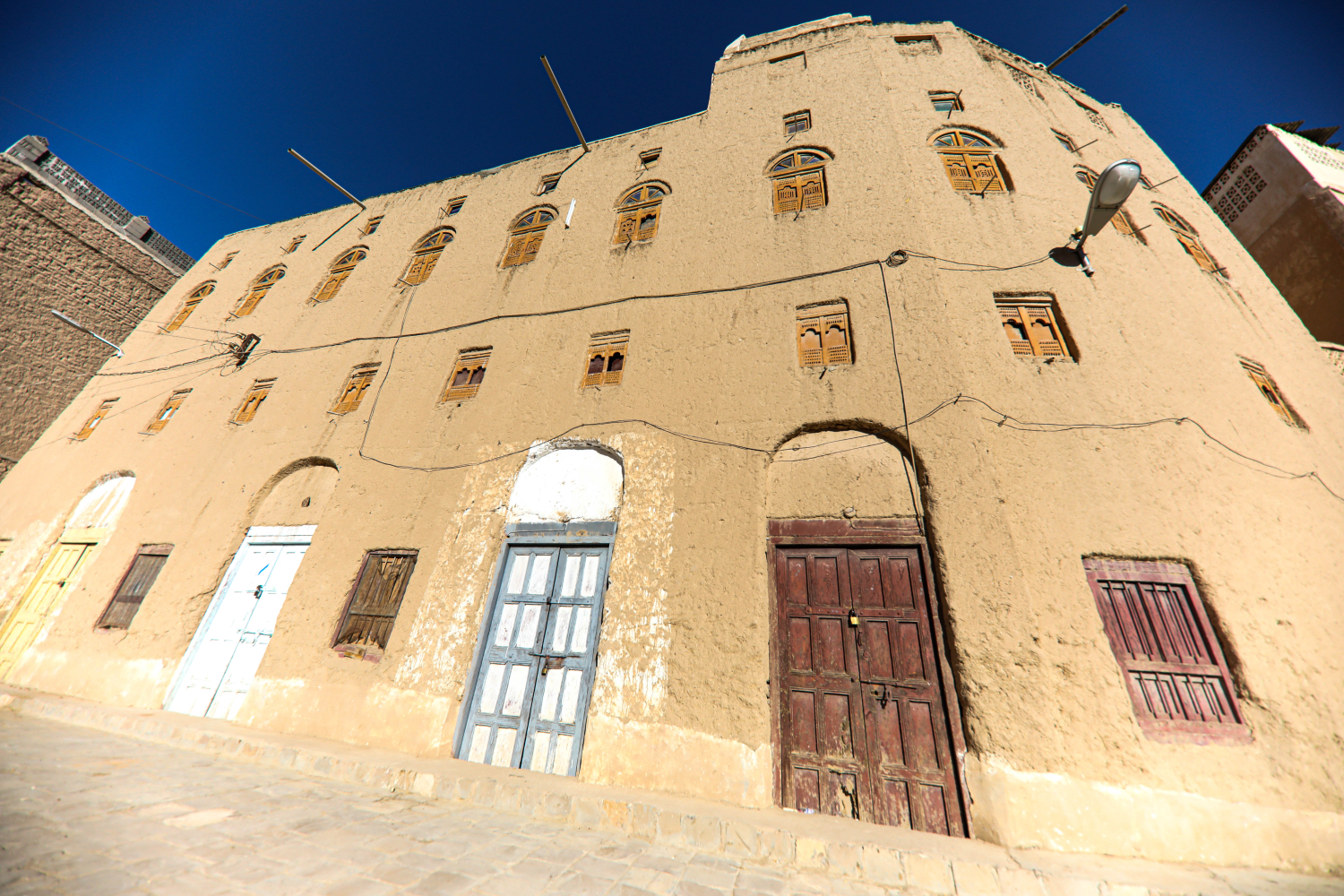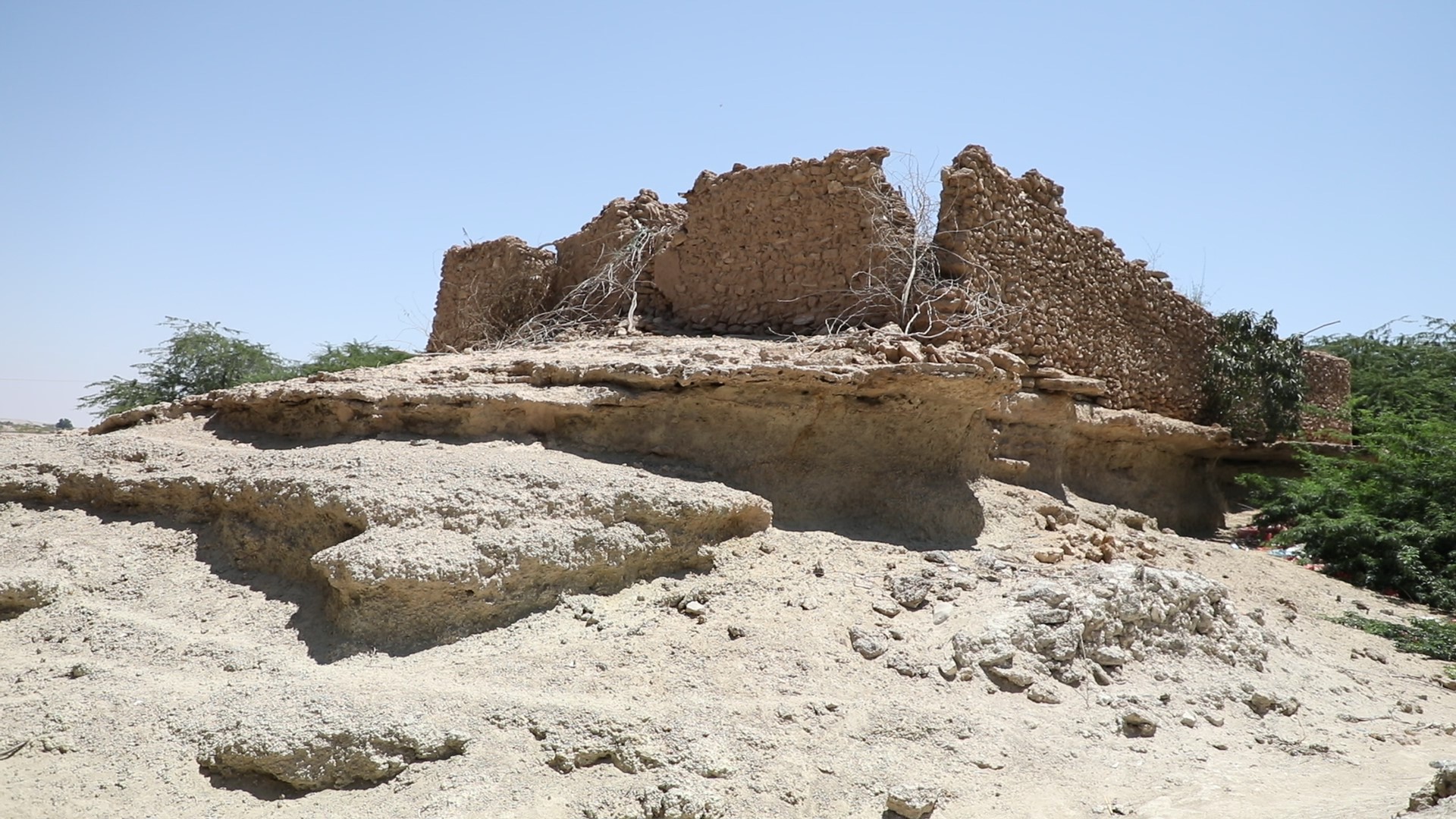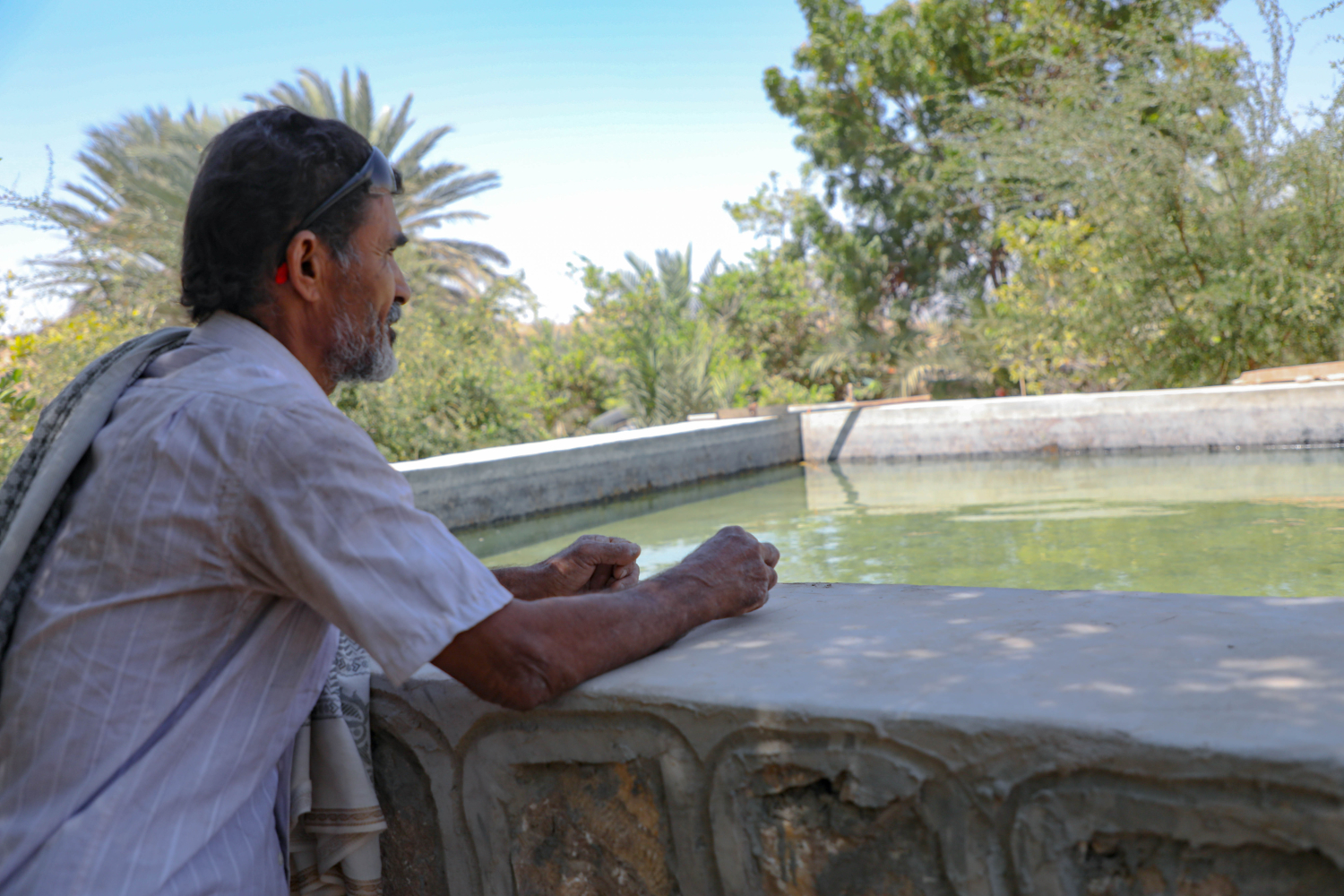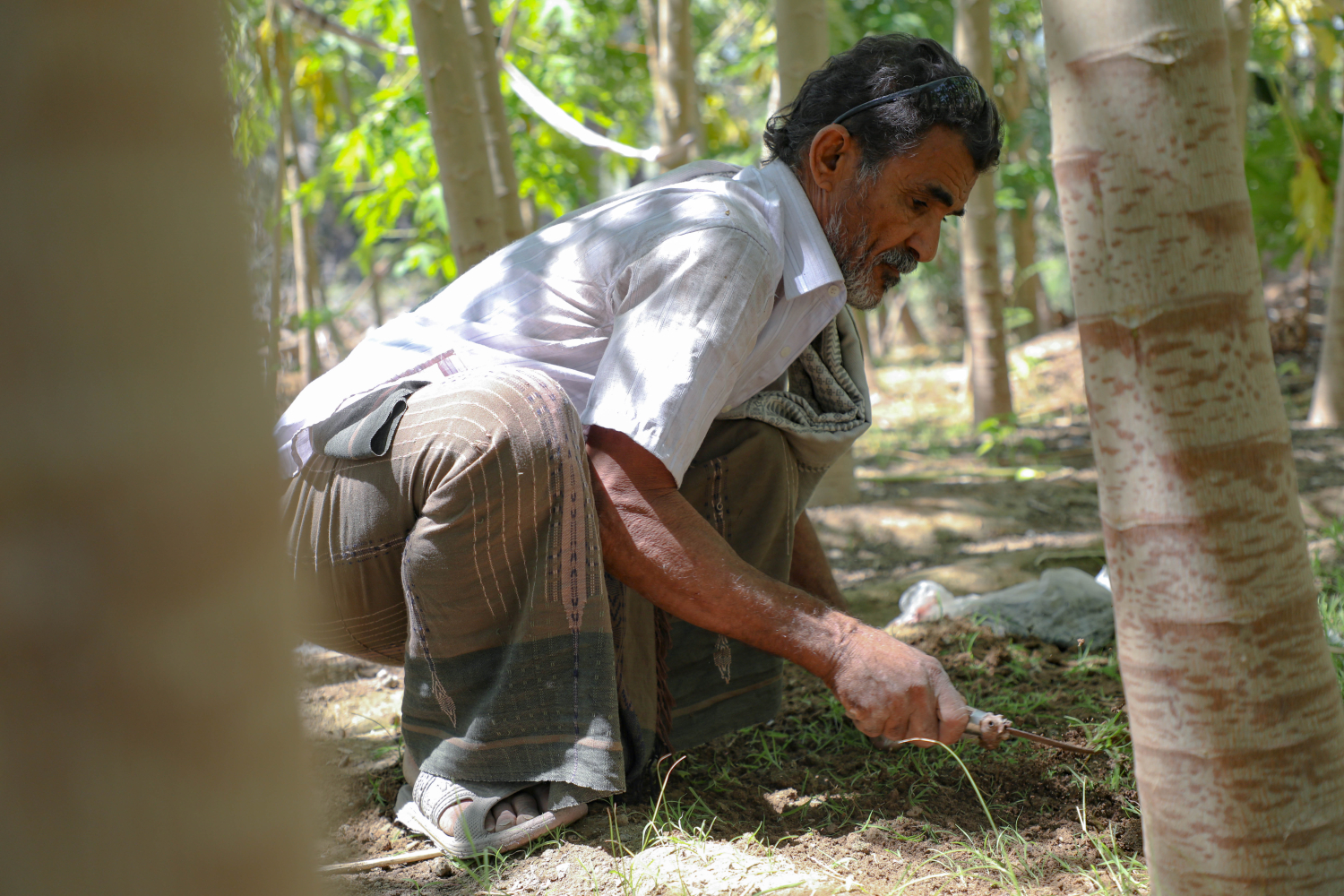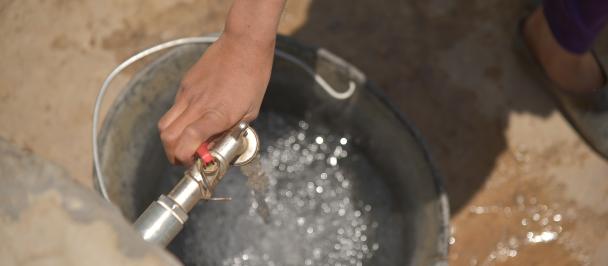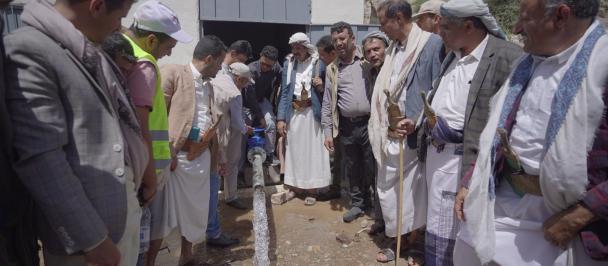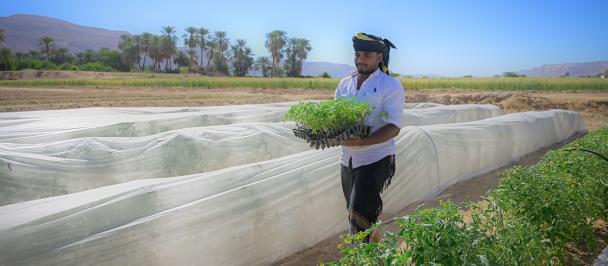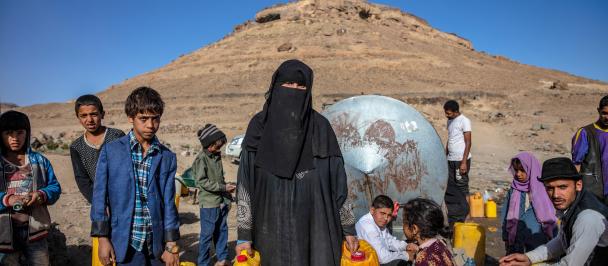Mohammed standing in his garden besides a papaya tree | Photo Credit: UNDP Yemen/2021
Water is the foundation of life and for Mohammed, 64, water is also the foundation for his successful business.
Residing in a remote village in Shabwah Governorate, southern Yemen, Mohammed is the primary breadwinner for his large family of 17 – a wife, seven sons, two daughters, a daughter-in-law and five grandchildren.
A veteran construction worker specializing in traditional clay buildings, his life and his job were derailed when Cyclone Chapala hit in 2015.
"I was born into clay building and have worked in the profession since childhood. A profession passed down from father to son, it was my only means of income," explains Mohammed. "The situation remained unchanged until Cyclone Chapala hit, destroying my house, which is made of clay. Everything changed for me and my family. We found ourselves displaced and with no home,” he says.
A house made of clay in Shabwah, Yemen | Photo Credit: UNDP Yemen/2021
Stormy weather and devastation
Tropical Cyclone Chapala was a powerful storm that caused great damage across Yemen in November 2015, destroying 214 homes and damaging another 600.[1]
Many people of those whose homes were destroyed, became displaced. Families were forced to take up residence in buildings that weren’t as badly damaged. Mohammed and his children found shelter in a half-constructed building – a basic structure to protect them from the heat of day and the cold of night, and where they wouldn’t feel that they were depending on anyone.
A house destroyed by Cyclone Chapala in 2015 | Photo Credit: UNDP Yemen/2021
"The destruction of my house was not the only disaster, the loss of my sole source of income was also difficult. After Chapala, people began abandoning clay buildings and started building their homes using concrete, which can better withstand a repeat of this tragedy," describes Mohammed.
After the storm, Mohammed found himself forced to work odd jobs, which were often more physically demanding, just to earn sufficient income for him and his family. But as a man approaching his sixties, the work was tough and unsustainable. His three eldest sons began working as porters to support their father.
"We were able to rebuild the house with clay and return after eight months of displacement," explains Mohammed. "I would have liked to build my house again with cement, but I did not have the necessary money."
Water, the key to a new life
While water was the cause of great hardship for Mohammed and his family, it would also become the reason his life would take a positive turn.
Mohammed saw potential in his land and approached the Social Fund for Development (SFD) to build a ground water reservoir. Together with support from UNDP and World Bank, Mohammed established a water reservoir that would allow him to start growing papaya, radishes, and other crops.
Mohammed and his sons – with help from skilled workers and community members employed through the same cash-for-work project – built a 18000 liters ground water reservoir fed from a spring near his home.
Mohammed and his ground water reservoir | Photo Credit: UNDP Yemen/2021
"I did not have much experience in agriculture, but I was determined to start working because it was the only chance I had to improve this bad situation," explains Mohammed.
Fruit picking season
After months of work, Mohammed established fields of papaya and radish as he had planned. He also started growing watercress and small quantities of cotton for domestic use.
Papaya trees in Mohammed's garden | Photo Credit: UNDP Yemen/2021
"I now have a steady daily income of 3000 to 4000 Yemeni Riyals (US$ 5 – 7). I sell radishes to vegetable merchants in the local market," says Mohammed. "Papaya season is scheduled to start soon and I estimate that I will make between 6000 to 7000 Yemeni Riyals (US$ 10 – 12) per day," he adds.
"For me, the water reservoir was the key to success and I was able to change my situation for the better! The motto that I always carry with me is to rely on myself to earn a daily living," concludes Mohammed.
Mohammed working in his garden | Photo Credit: UNDP Yemen/2021
To help Yemeni’s cope amid this worsening crisis, in 2016 the World Bank and the United Nations Development Programme (UNDP) partnered with two key national institutions – the Yemen-based Social Fund for Development (SFD) and the Public Works Project (PWP) – to prevent a full-blown famine in Yemen. This partnership was designed to respond to the food shortages plaguing Yemen.
Through the Yemen Emergency Crisis Response Project (YECRP), a US$ 400 million project, the World Bank, and UNDP work together to build the capacity of SFD and PWP. Despite the conflict, the institutions have been able to continue providing critical community-based and economic services to millions of Yemenis.
-------------------------------------------------

 Locations
Locations